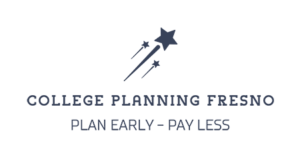The Expected Family Contribution (EFC) Explained – What It is & How to Use It
When you’re applying for financial aid, no number is more important than your Expected Family Contribution.
Simply put, the amount of aid you’ll get is figured by taking the cost of college and subtracting your EFC. Thus – the smaller your EFC, the more money you can get.
With that in mind, let’s take a look at exactly how the EFC gets calculated – and how you can best bring that number down.
Understanding the Expected Family Contribution (EFC)
The EFC is figured through a combination of the income and assets of the student, parents, and any other family member contributing to the cost of college.
Here’s the simple, quick-and-dirty way to figure it: Income counts more than assets, and student money counts more than parent money. In other words – if a student has income from a job, that’s going to be figured as going towards college costs at the highest rate.
That gives us a number of great ways to bring our EFC down.
Spend Student Money First
You’ll typically want to spend down student assets first. Student assets are figured at a high 20% usage rate every year, while parents are down at around 5%-6%. So, if you’re in need of a new laptop to bring to college, save yourself the EFC hit by spending down student savings first.
Reduce Income and Assets Across the Board
If you can help it, don’t take money out of retirement accounts – that will count as income and boost up your expected family contribution – and at a much worse rate than assets would.
Likewise, if you can, sell any stocks you need to sell prior to your Base Income Year beginning.
Pay off your debts early – debts typically don’t count against your assets (outside mortgages at certain schools), but you can pay them off to take that money off your balance sheet.
For your assets, if you’re planning on making any big, major purchases, do that before applying. The equity in a house can potentially count as an asset in the formulas – the cost of a car, generally, will not.
Timing is Everything
Most of what I’ve said so far is fine in theory – but can be very difficult in practice. You may need to sell some stock to afford tuition, for instance.
That’s fine – just do it at the right time. Your FAFSA application – the application used to determine your EFC – just has to be accurate at the time you submit it. That means you can feel fine selling stock to pay for college but if there are going to be large capital gains that are going to count against you (more than keeping the stocks where they are), you might want to wait until after you’ve submitted your FAFSA to sell them.
Be Early, and Be Honest
Mistakes happen – especially on relatively complex forms like the FAFSA. If you submit early, you not only give yourself the chance to grab financial aid while the pie is largest – you also give yourself a chance to correct any errors in a timely fashion.
Miss the final deadlines, and you’re getting nothing.
Likewise, NEVER lie on the FAFSA. Mistakes are one thing – and damaging enough. If you get caught lying or fudging numbers, you’ll have to give back any financial aid received, possibly pay fines in the tens of thousands of dollars, and face up to five years in jail.
Keep in mind, over 30% of FAFSA applications do go through a more detailed inspection – the financial aid equivalent of an audit. Lying on your application just isn’t worth the risk.
Besides – if you follow the above guidelines, you’ll be able to reduce your EFC legally and effectively without risking a thing.
A Unique Opportunity
You may not find this opportunity anywhere else in the college planning space.
It’s an “inside look” at your college funding situation with an authorized college funding advisor – absolutely free.
We’ll help you figure out where you stand, including whether or not you can lower your expected family contribution (EFC) – and maximize your eligibility for financial aid. What’s more – you set the date and time for the call.
Sign up for your free, no obligation consultation by following this link.
(It’s important to recognize that individual circumstances and efforts can significantly impact outcomes. Engagement and commitment from both the family and student are indeed crucial factors in achieving positive results. The advice and direction provided by CPN (College Planning Network) and CPF (College Planning Fresno) can serve as valuable guidance, but ultimately, it’s up to the individuals involved to actively participate and implement the recommendations effectively.)

